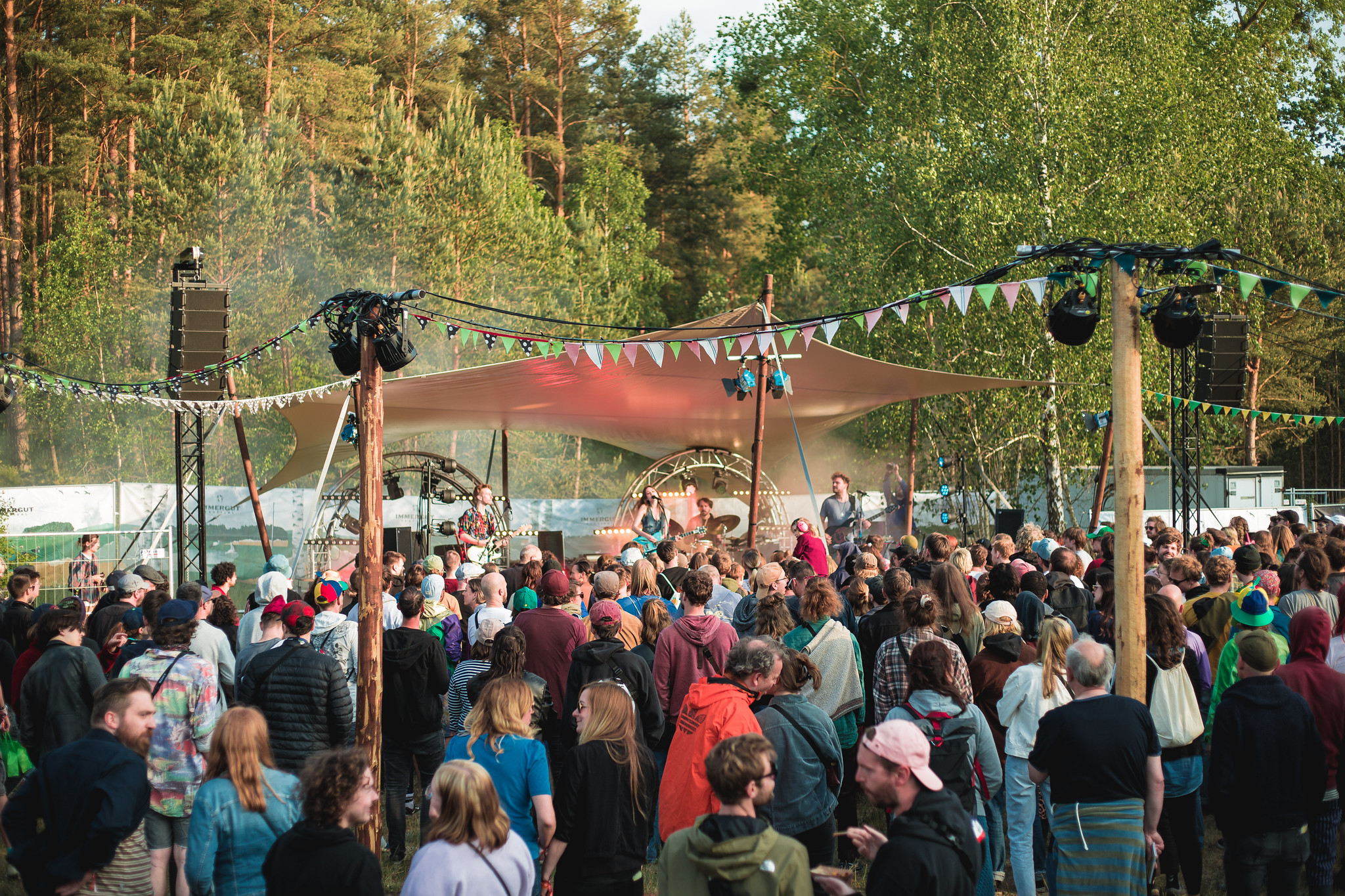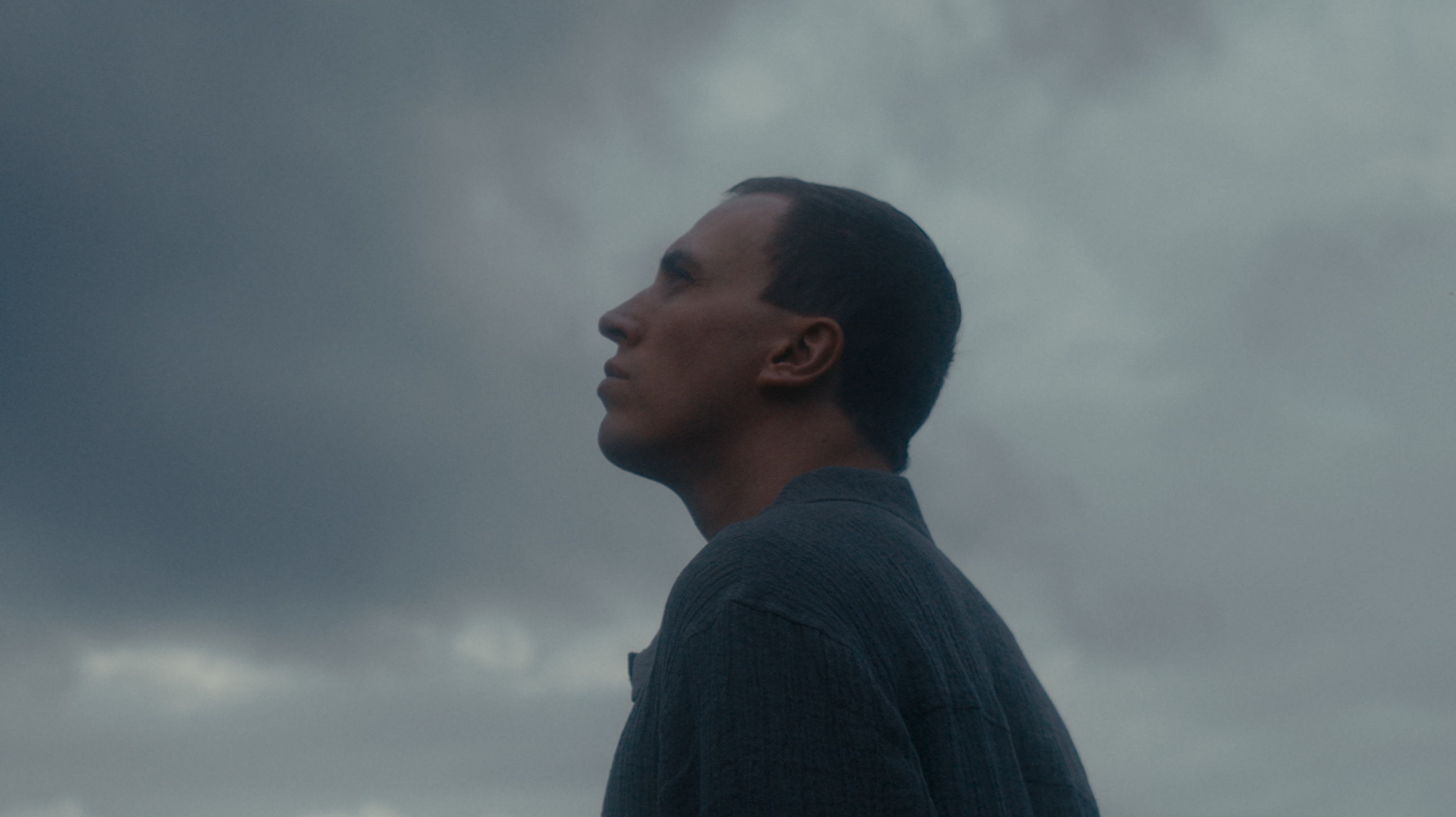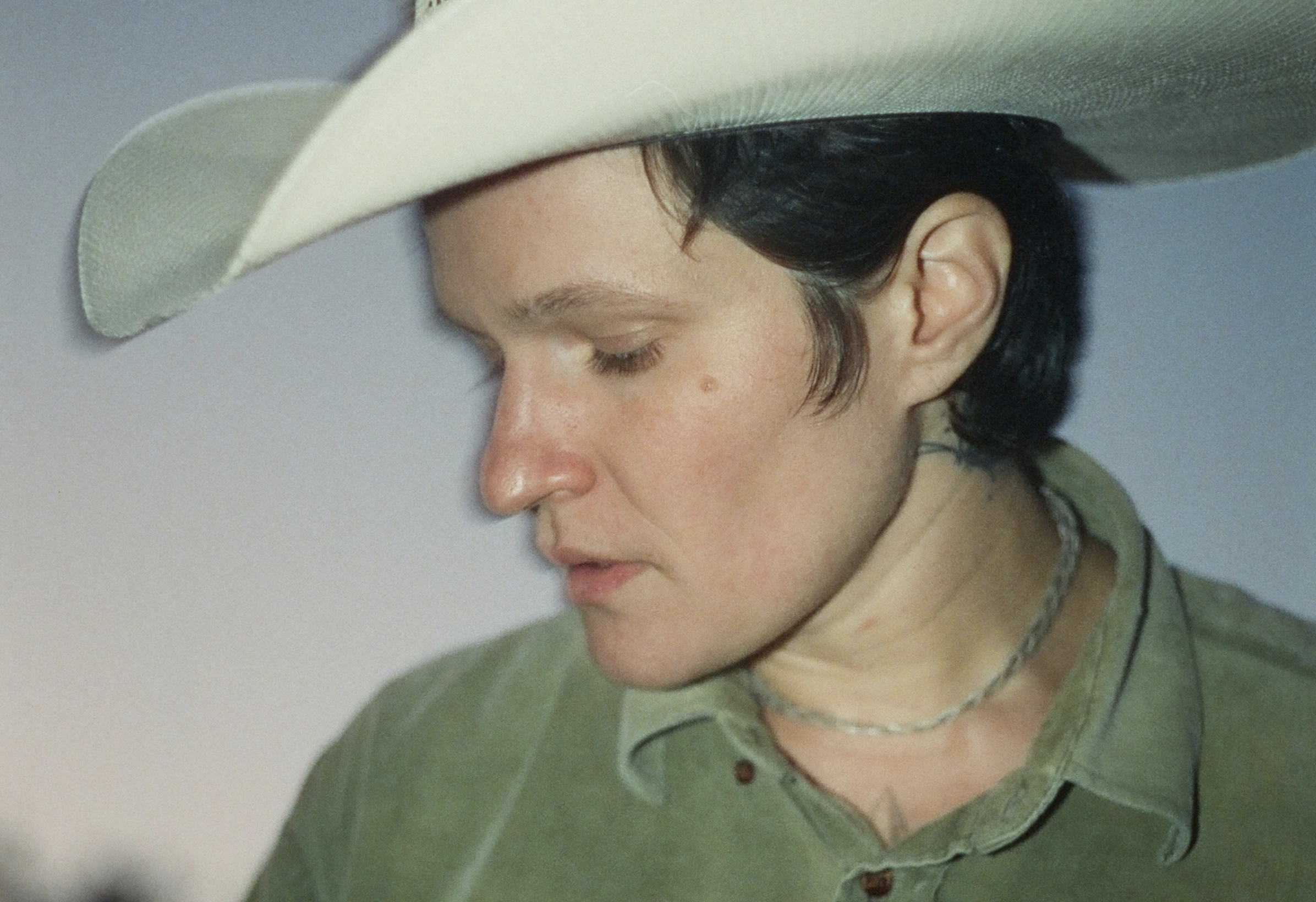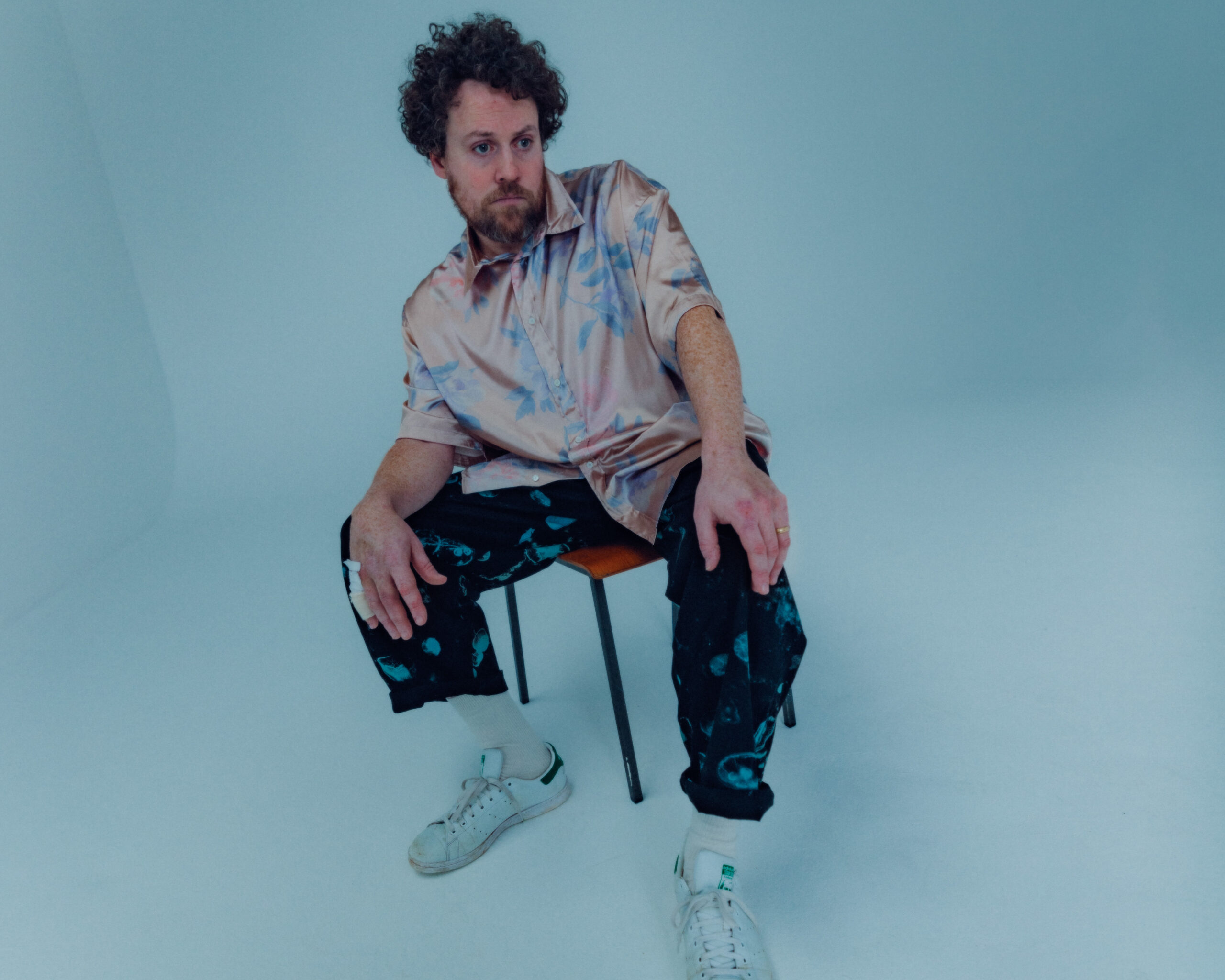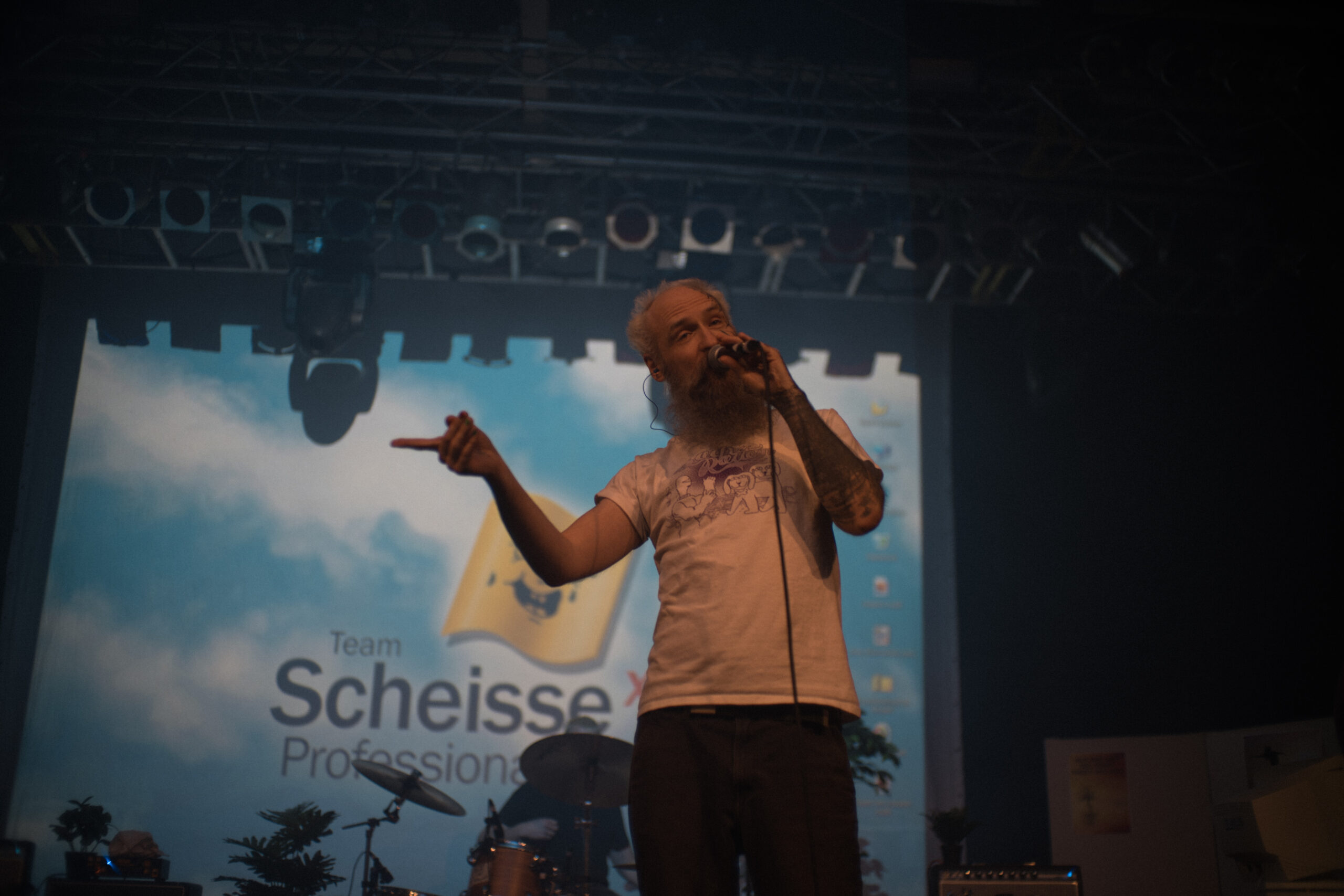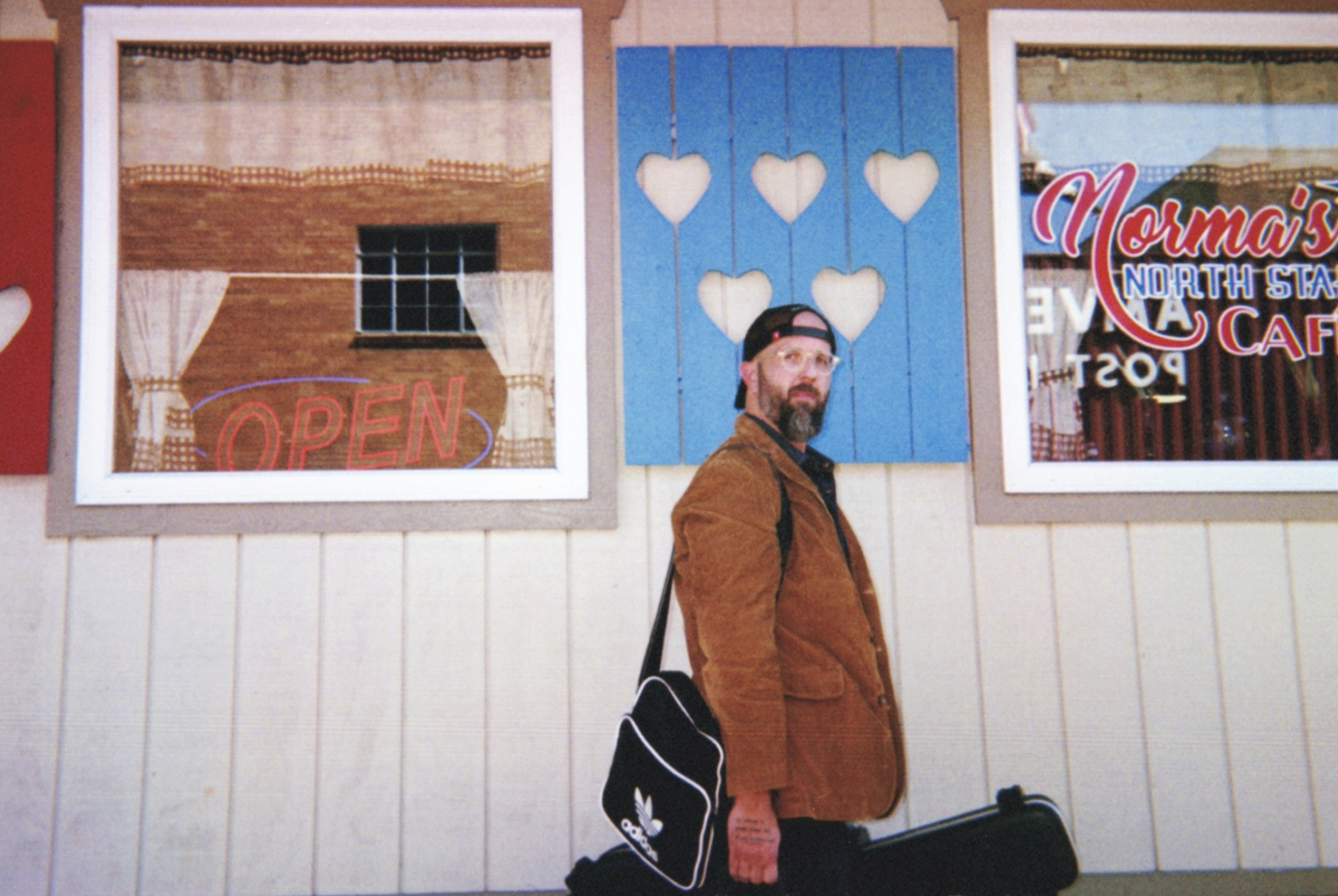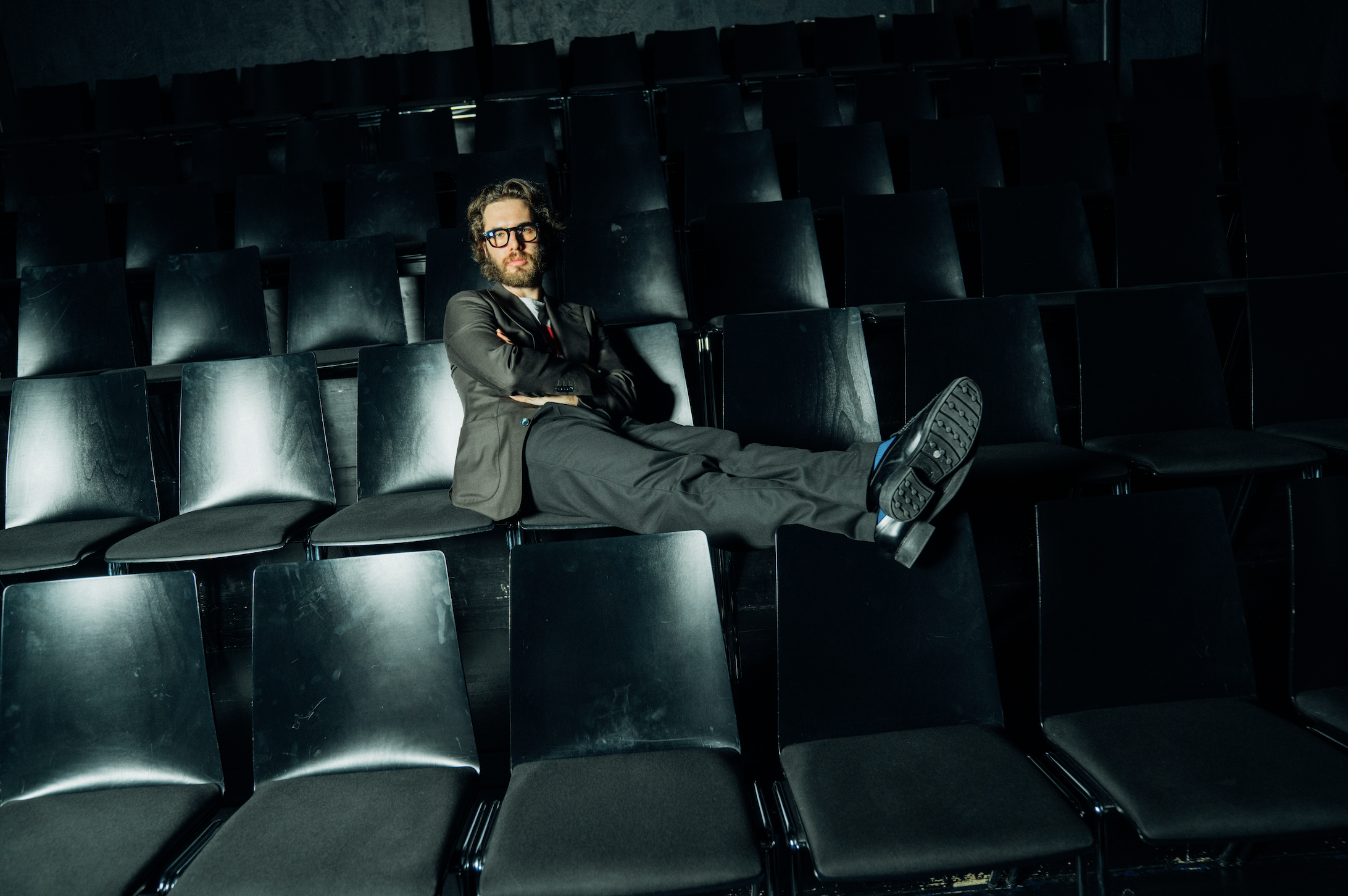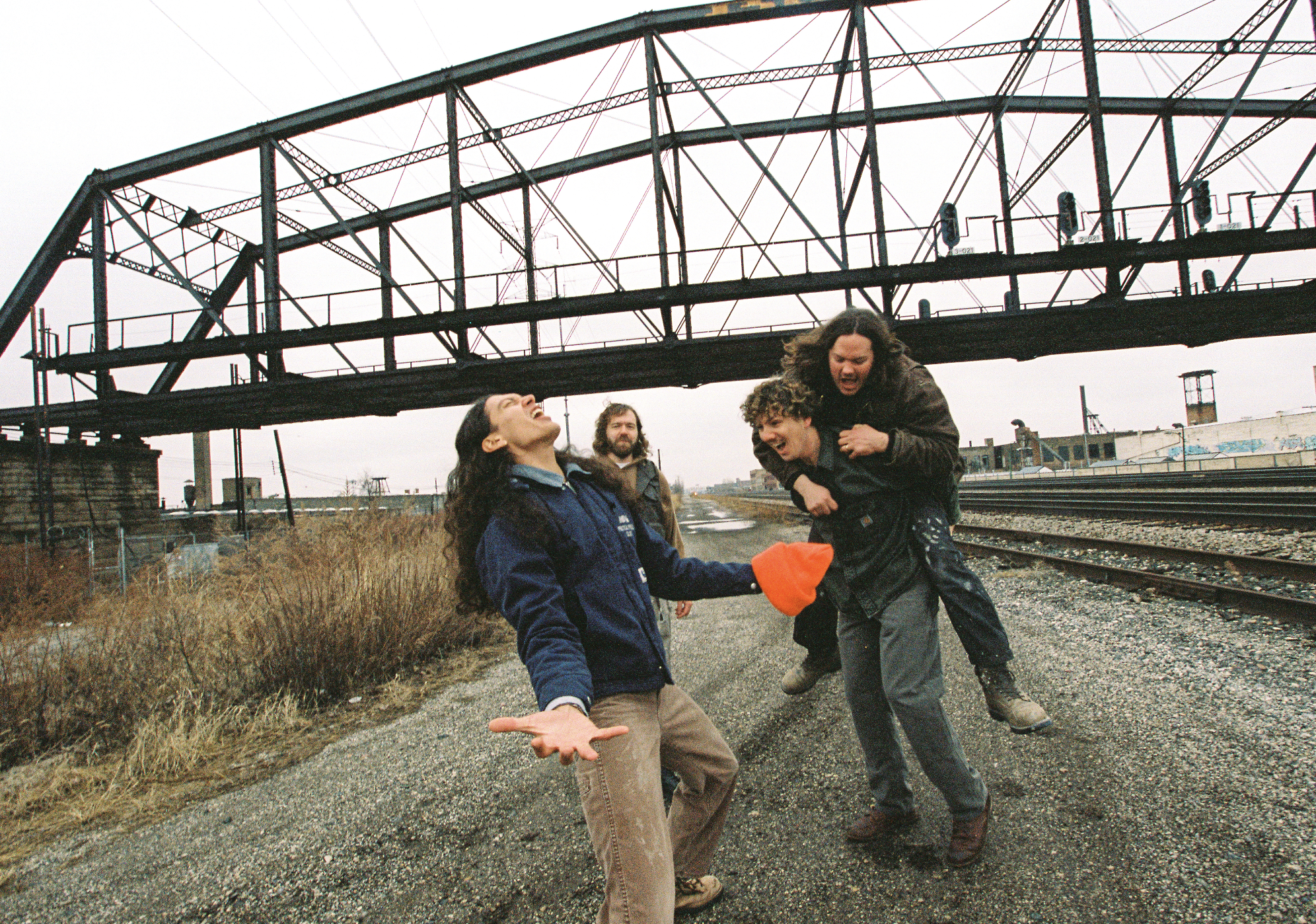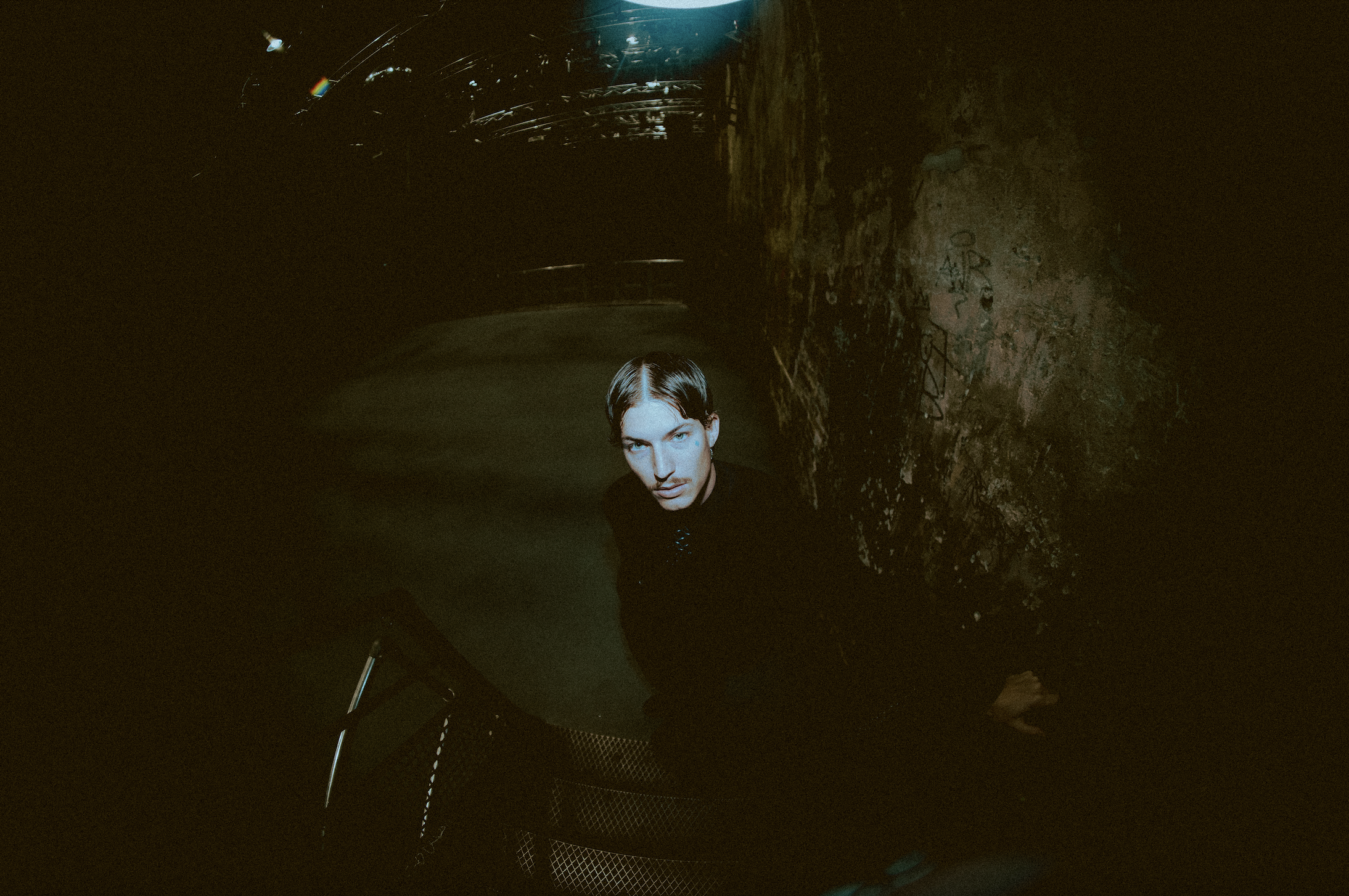Foto-© Malin Lautenschläger
Wir haben Gus Dapperton kurz vor der Berlin Show seiner Henge Tour getroffen und mit ihm über sein aktuelles Album und die Inspiration für seine einzigartigen Looks gesprochen. Das Gespräch ging um nichts geringeres als die Lebensbestimmung als Creative wieder zu finden, inwiefern seine Musik seine Ästhetik bestimmt und welchen Rat er angehenden MusikerInnen geben würde.
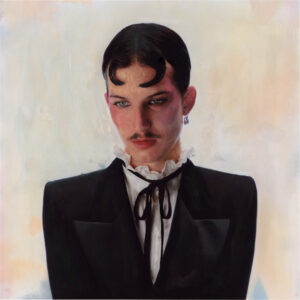 I just want to start off by saying that I genuinely think that you as an artist are just kind of the definition of art, just how everything comes together. You have your sonic musical side because you’re a musician, but you also have your unique aesthetics. And I think both of that really creates a great whole image.
I just want to start off by saying that I genuinely think that you as an artist are just kind of the definition of art, just how everything comes together. You have your sonic musical side because you’re a musician, but you also have your unique aesthetics. And I think both of that really creates a great whole image.
Totally.
I want to speak definitely about both with you, but I would like to start with the music since you’ve released your current album Henge this summer. How has life been in the meantime?
It’s been great. This year has actually been a very interesting year in terms of my life. Just a lot of big changes like career and personal and relationship and environmental changes. So it’s been a really exciting and fun year for me, just like in my adulthood, honestly. But yes, it’s been great. I’ve been really I’ve been working on a lot of new music and I’ve been touring a lot and it’s been really fun.
Yeah, sounds like an exciting time. When you shared your album artwork I saw, you had like a little caption on Instagram talking about that after releasing Orca, your previous album, and then until the release of this album, you’ve also been struggling a bit with finding your purpose. Do you want to share a little bit more about that?
Yeah, sure. I made the album Orca before quarantine happened. I think a lot of people thought I made it during quarantine because a lot of the lyrical content is about sort of about like mental health and depression and kind of was very relatable during that time. But I had written that album like the year before quarantine, and we just decided to release it then, and I never had really struggled with like inspiration too much or what I thought my purpose was or if there even is a real purpose. And I think my whole mantra and motto growing up was that quality and innovation and progression will always prevail, whether it’s in music or other forms of art. And when quarantine happened, I was like, oh my god, art doesn’t really matter kind of right now, or it matters less than I thought it did or something.
And maybe that’s not true, but that’s like what I thought. And I thought about, how maybe being so focused on it didn’t really matter as much, but so I think just right after and during COVID, it took me a while to, find inspiration again and know when it was really hitting me. And I think like it’s not really a writer’s block sort of a thing, but it’s more of a lack of motivation because of maybe feeling like there’s less purpose than there was before. But after I released Orca, a lot of people had reached out and been like, thank you so much for putting this out, it really helps me during this time. It kind of helped motivate me to keep working on new stuff.
I think like from each album there’s lots of different kinds of inspiration I get. So with this new one, it was a little bit more about that struggle of sort of these two sides of really wanting to be healthy and safe and like have a routine and be comfortable during that time. But also that lack of socialness and the chaos and change and freedom of being outside. So Henge is like a lot about that balance.
I think that’s very relatable. I mean, we were all kind of stuck and I feel like especially if you’re creative then you generally struggle with these kind of things from time to time. Also, I felt like that it was really hard to find inspiration because you couldn’t really talk to anyone, didn’t have any social contacts or very limited. So there was no new influences coming your way and it was up to you sort of digging in yourself to find something new.
Exactly and I always say there’s this thing after a certain amount of time, you can always learn more about everything. But I think at a certain point of doing something so much, you kind of begin to master your craft. But without the actual inspiration and influences and real life experiences, it’s kind of even hard to like practice working on your craft. Like, I think you need to have equal amounts of real world experience and practice.

I started photography during COVID and the only person I could shoot was my family, which was nice but there was nothing really new about it and no difference in scenery. Do you have any advice for people struggling in finding their purpose? You said earlier that you had people texting you saying what your music meant to them. But other than that, do you have any other advice or practices that you would tell other creatives?
I think like, I guess my advice for people who are maybe pursuing art and creativity as like a career, a lot of people ask me, like how to get themselves out there and and stuff and how to market themselves. And I’m always telling them that shouldn’t really be the focus at any point.
I think you create because it is cathartic to you and because it makes you happy or makes you feel at peace or something. Even when I’m writing a sad song, it doesn’t make me happy, but it makes me feel at peace. And so I think just focusing on your craft really, and what it means to you and honing back to the original passion for it and always remembering that passion before you think about sharing it with an audience.
For me, I’m just grateful I found something that I love to do, and I’m really fortunate that I could do it as a career. And I hope that people aren’t focused on the career path before they’re focused on the creation.
I totally feel that. I also reflected recently that I was working a lot but not really creating in a sense and just like doing it to pay the bills. But I also just felt like getting back to finding again that initial purpose of why it all started and focusing on where it came from.
Actually, I feel like a lot of photographers that I know have felt that way. My ex-girlfriend was a photographer and fell in love with it so much. And then as it became so sporadic with different client based shoots and them all being very different, like payment wise or like exposure wise or opportunity wise, working with a few different people each time. And I think she started to fall out of it and it’s kind of a sad thing. But so yeah, just kind of going back and finding that original passion for it is important.
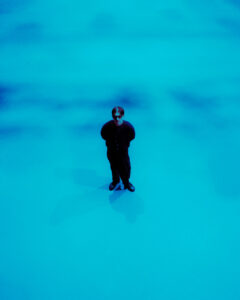 I think probably it speaks for every creative. Back to your current album. You’ve got three features on your album Henge and I also listened through your previous albums and I saw that on one you had one feature and the other one none, but was there a reason that this time on Henge you were determined that you’d want to work with these people at some point, or was it kind of happening organically?
I think probably it speaks for every creative. Back to your current album. You’ve got three features on your album Henge and I also listened through your previous albums and I saw that on one you had one feature and the other one none, but was there a reason that this time on Henge you were determined that you’d want to work with these people at some point, or was it kind of happening organically?
It all kind of happens organically. I try not to, again, use it as like a marketing tactic. I try to just work with my friends and people that I already am talking to a lot. So with my first couple albums, I wasn’t keen on getting a lot of features because I still felt like it was practice to me and I still was just trying to figure out what my sound is and it’s all kind of an experiment. And then when I made Orca, I feel like I knew exactly what I wanted to make, and Chela was on that album. She was just a good friend of mine, came on tour with us and I really liked hanging with her, so we just decided to make a song together.
And then similarly with this album, like I already had worked with BENEE and Cruel Santino, so we just kind of talked a lot and were good friends, so just decided to work together. I think like often times it’s hard to get into a room with someone as strangers actually for the first time and make something I’m really happy with because I feel like things I’m most happy with are the ones where after a while we spend talking to each other about life and relationships and all these things, and then it’s and then it’s easier to collaborate with someone because we’re both like on the same page or the same feeling. And then Ocean Vuong, we also were friends and I just really wanted to figure out a way we can collaborate together because we’re both fans of each other and we have different mediums of art, but both admire each other in our respect. So I was really hoping to get him on it at the end.
It’s always beautiful to create with your friends as well, because then it just also comes from like an unforced nature kind of. And ideally you just feel calm about it and you share an interesting process. Also meeting your friends probably in a whole different way. Is there any track on the album where you would say that that kind of speaks best for the whole project, lyrically or due to the process of it?
Yeah, I think the song Wet Cement and the song Sunset. Wet Cement was probably the first song I wrote for the project and it sort of determined what the rest of it was going to all be about. So that one really led me to catapult into all the other ones. I think it sort of sums up a bit how I was feeling.
And then also the song Sunset, too. The album was a lot about the duality of these extremes like push and pull, just wanting chaos and then the other side like wanting safety and routine and all that.
It’s interesting that you are saying that there is sort of an origin and then everything else came from that.
Yeah, I think a lot of them are like subgenres of the grandiose idea, and Sunset is maybe like the holistic vision and the rest are kind of ones that can all be interpreted differently. But I think that one (Sunset) sort of sums it up a bit.

I want to speak also a little bit about you aesthetics and your fashion. You’re obviously using fashion, as many others do, as a tool to express yourself. Has that always been the case, or was it something that kind of developed throughout you music making journey?
It’s kind of always been the case. I think growing up I really looked up to individuals and people who express themselves in a unique way. And I think growing up, a lot of me and my friends were skateboarders and I feel like skaters all have a really specific identity and style is a big part of it.
You would like skaters literally because of their fashion sense. I always liked the riders on Supreme, because they all had a really sick sense of fashion. And just a really individual style that I hadn’t really seen before. So I think like individuality and expressing yourself has always inspired me.
And then by that, you know, I definitely like had a keen sense of what I like to wear. So in high school I always had like a bit of a unique style. Definitely like gotten a little more eccentric over the years, but I think with my own fashion sense and visuals and stuff, it all just ties back into the music and what I’m inspired by and I think it all is really intertwined.
Like Henge is all really inspired by New York City and like urban environments. And somehow that and the sounds, I was like really into a lot of like eighties synth sounds and a lot of like clean guitar tones. So I think I was really into these boxy eighties suits and stuff and then sort of prohibition era like suiting looks and like hair and makeup just because of the shuffle beat clean guitar tone.
So I think every time I’m making music, it all kind of seeps in to just what I’m inspired by. So I think like the visuals are representative of what’s inspiring me. Like now I’ve been really inspired by like nature and being in nature. When I write and like thinking about it. And so I feel like the next project I will…
…look very green, haha.
Yeah, haha, the colors will be more earth tones or something.
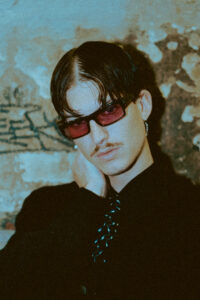 That’s nice. I feel like lots of people generally always strive to find that purpose we talked about. And same about their aesthetics or look. But I like your point of view of saying I don’t want to have that one final look that I want to find as soon as possible, but rather are open for changes throughout different projects and years.
That’s nice. I feel like lots of people generally always strive to find that purpose we talked about. And same about their aesthetics or look. But I like your point of view of saying I don’t want to have that one final look that I want to find as soon as possible, but rather are open for changes throughout different projects and years.
And I think also, I’m inspired by so much music and I think most people in our generation, you know, there’s just more music to consume and like growing up, I was always inspired by every genre. My parents would pretty evenly play a lot of different stuff. When I first started making music, I was really inspired by like old school hip hop beats and as a child, I was always really inspired by like pop music, like Britney Spears and Timbaland and Pharrell and all that.
And then in middle school, I was really inspired by indie music. So I think naturally subconsciously, all of those things are kind of inside of me and what I like to listen to. So I think when artists try to just pick what their sound is, it bothers me a little bit because it doesn’t feel like real that that would be the case.
It feels real that if, you know, you’re listening to tons of different types of music, like you’ll get into a new band every couple of years and get into a new decade and time of music and era and start listening to that. And it feels strange to like not let that inspiration seep into what you’re doing at the time.
I think that probably also comes a lot from then, again, the marketing thing that we’ve talked about that it’s kind of people telling you that you need to find your little bubble, so that it works well and that it reaches the right audiences and I think that’s probably also a big part for some people, because they just see more the money side of it than the actual process.
You talked about music that influenced you, but do you have any style icons as well in that sense?
Currently I don’t, but I think just in general, lots of it. In terms of musicians, I was always really inspired by David Bowie and his like sensibility of letting his inspirations seep into his art with each new project. I really respect that and think about that a lot. I always really liked The Smiths and how they dressed then. A lot of cardigans and like buttoned down shirts and tucked in shirts. And just lots of Michael Jackson to like the high water pants and wide leg pants. Mainly those. But honestly, people in New York have really good style and my friends and sometimes we inspire each other.
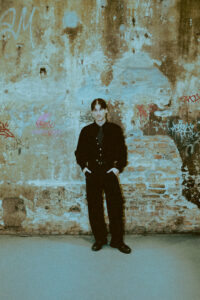 I used to live in London and had the same feeling. I was going on the streets and everyone just had their own style, looking beautiful. Do you think you can describe your art in three words?
I used to live in London and had the same feeling. I was going on the streets and everyone just had their own style, looking beautiful. Do you think you can describe your art in three words?
Hm, I don’t want to waste any word. I guess if it was for a new person I’d say melodic, as all my songs are very melodic. There’s lots of words consuming pretty much the entire song. And it’s not a lot of instrumental sections in them. Um, maybe poetic. I really, really care about lyrics and I try to say things that I haven’t quite heard before and try to lead myself to like punch lines that are new and thought provoking and sweet. And the last one simple. Maybe. I feel like most of my songs are pretty simple. At the end of the day, I try to get the point across with the least amount of information as possible. And I think that that’s a lot of times what I am drawn to in music, something that can still be epic and like lots of sounds, but I think at the end of the day, there’s just a very simple idea, really. So melodic, poetic and simple.
I like that. And since you’re playing a show tonight here in Berlin as part of your Henge tour, how does it feel like being on the road again, all these different places and what experiences are you hoping for?
It feels really great. I think my whole purpose with playing shows is I never knew I was going to have to play shows. When I first started making music, I just thought I could be behind the computer the whole time. But I’ve learned over the years what the purpose is, and I think for me, when I go see shows, I am not looking for anything, but I always end up being very inspired and taking in what I see and what I hear.
And I think it’s just to inspire the next generation of artists and people, whether they’re creators or not. I think to relate to people who have a similar taste in music that you do and appreciate self-expression. So I think with each new project, I just really want to play the new songs for people that they haven’t heard before, and hopefully it comes across really well.
I love it’s such a such a privilege to be able to come to all these awesome cities and and be able to explore and play for everyone. And meet new people. I feel like I’ve seen so many people from all over. It’s it’s really a privilege.
I have one last thing that I want to ask you as I always feel like, you know, doing interviews and all these things, it’s always very narrated by the person doing the interview, because there’s a set of questions that you can answer to. Do you have maybe any message that you want to add to conclude this interview, no matter the topic, could be anything that you want to tell the world?
Totally. I mean, I’ve said this a lot, but I think like for me, when I started making music, I was always really introverted and shy and I felt like maybe the environment I grew up in was a little bit not super supportive of really authentic self-expression. So I always just say to the people be yourself and don’t be afraid to express yourself.
I think oftentimes the reward is greater than the risk. And also don’t be afraid to try to create. I think some people think that because they’ve never done it before, they can’t get into it. But for me, in music, I never was a natural anything. I always just did it because it made me feel good. Just try even plucking one note, like not really being able to play it at all or just singing in the shower.
Embracing the failure.


